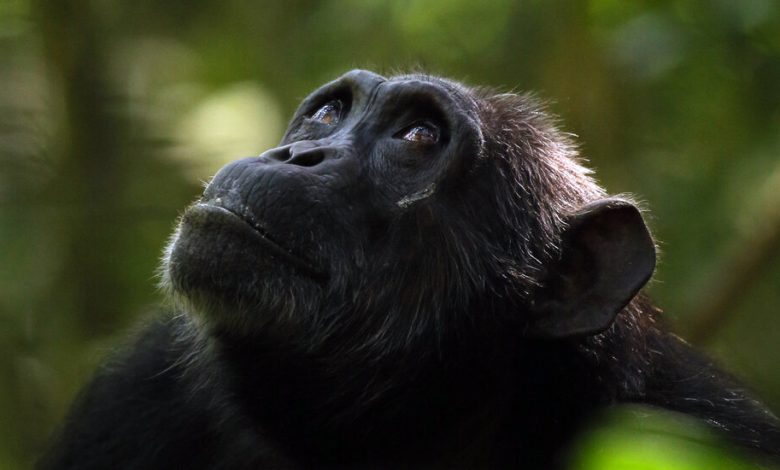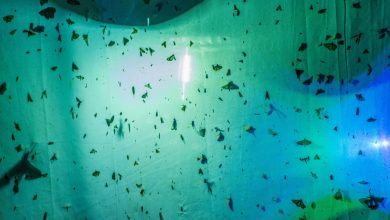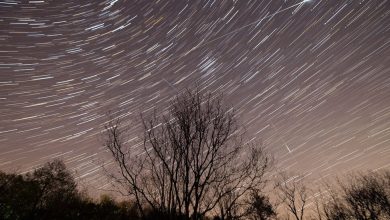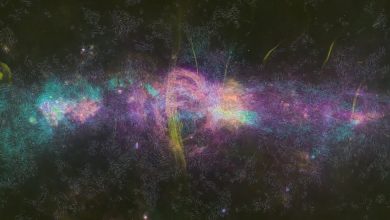Chimpanzees Go Through Menopause, Too

For biologists, menopause is baffling. If natural selection favors genes that produce more descendants, why don’t women remain fertile their entire lives? What’s the evolutionary benefit of living for so many years without having more babies?
The mystery has only deepened as scientists have looked for menopause in mammals in the wild and found clear evidence of it only in a few species of whales. “It is very, very rare,” said Kevin Langergraber, a primatologist at Arizona State University.
That rarity has led some researchers to argue that menopause played a crucial part in the evolution of humans. Perhaps, they proposed, it was a crucial ingredient in raising children whose big brains need lots of time — and parental support — to fully develop.
But a study published on Thursday by Dr. Langergraber and his colleagues challenges this view. After decades of observations in a rainforest in Uganda, they discovered that some chimpanzees go through menopause, too.
Susan Alberts, a biologist at Duke University who was not involved in the research, said that she would have been skeptical of such a claim in the past. She and her colleagues have performed some of the key studies showing that other primates do not go through menopause.
But she said the data from the new study, which includes observations of older female chimpanzees as well as measurements of hormones in their urine, had persuaded her. “The data are beautiful,” she said. “It’s just clear in their analysis that they have dotted every i and crossed every t.”

Ma Rainey died in 2012 at age 63. She had her last known pregnancy 15 years earlier, at age 48.Credit…Kevin Langergraber/Arizona State University
In 1966, the British evolutionary biologist William Hamilton speculated that women’s long post-reproductive life must have been important in the course of human evolution. Other scientists later turned Hamilton’s musings into detailed theories, including the famous Grandmother Hypothesis.
Over the course of human evolution, that theory goes, our species gained much larger brains than other apes. As children’s brains slowly develop, they are relatively helpless, depending on adults for food and protection for many years.
At the same time, as women get older, giving birth and raising children gets more dangerous both for themselves and for their offspring. Instead of taking that risk, their later years could be focused on helping raise their grandchildren.
The Grandmother Hypothesis has been bolstered by some studies of women who live in farming villages or in bands of hunter-gatherers. In those groups, children who get extra food and care from their grandmothers are more likely to survive than children who do not.
“We make transfers in a big way to the next generation, and the generation after that,” Dr. Alberts said.
In recent years, however, Dr. Langergraber and his colleagues have questioned the theory. Since 1995, they and others have been watching the so-called Ngogo community of chimpanzees in Uganda. They noticed a number of healthy, old female chimps that were not having more babies. A chimp named Garbo, for example — one of the stars of the “Chimp Empire” series on Netflix — is now 67 years old. She had her last known pregnancy at age 38.
Brian Wood, an evolutionary anthropologist at the University of California, Los Angeles, conducted a statistical analysis of data collected from 185 Ngogo females and found that a significant number had lived long after their last known pregnancy.
Jacob Negrey, then a graduate student at Boston University, then collected urine from both young and old chimpanzees. In some cases, he captured it by laying out plastic sheets under their sleeping trees. In other cases, he collected it from leaves.
Later, Melissa Emery Thompson studied the urine at her lab at the University of New Mexico, measuring estrogen and other hormones in the samples. The researchers found that the hormone levels changed over the life span of female chimpanzees in the same way they do in humans.
“I find the evidence compelling that these females are living long past the end of reproduction,” said Michael Cant, an evolutionary biologist at the University of Exeter who was not involved in the new study.
Only a few other populations of chimpanzees have been the focus of long-term studies, and researchers have not seen any sign of menopause in those groups. The new finding raises two possibilities: Either the Ngogo chimpanzees are peculiar, or they are typical of apes and the other populations are weird.
The Ngogo chimpanzees enjoy a particularly good life, Dr. Langergraber said. The forest is rich with food, and the leopards that once hunted the apes have largely been eradicated by humans. So it is possible that Ngogo females have a chance to get old that is not usually afforded to chimpanzees.
But Dr. Langergraber leans toward another possibility: that menopause used to be common in chimpanzees but has become rare as chimpanzees face threats from people.
People have hunted chimpanzees across Africa, as well as infecting them with deadly diseases. A common cold virus that only causes sniffles in humans could be lethal to chimpanzees.
But for the most part, Ngogo chimpanzees have been spared these modern assaults. Park guards have largely been successful at keeping poachers’ snares out of the park, and scientists are careful to wear masks and keep their distance around the chimps to avoid passing on viruses.
Without much disease, Ngogo chimpanzees may live long enough to experience menopause. Perhaps chimpanzees have experienced menopause for millions of years. It’s even possible that menopause arose in the common ancestor of chimpanzees and humans seven million years ago.
The Grandmother Hypothesis doesn’t explain how chimpanzees could evolve menopause. With relatively small brains, baby chimpanzees are not as dependent on their parents as human children are. And Dr. Langerbraber and his colleagues have not observed Garbo or other older females providing any extra food to their grandchildren.
To look for other possible evolutionary explanations for the menopause in chimpanzees, Dr. Langergraber and his colleagues are looking to whales.
In many wild species, females become less fertile with age. But until now, only five species of whales had displayed the distinctive signs of menopause, defined as a sharp halt to their reproductive years long before the end of life.
Studies on killer whales have revealed that the offspring of older females are less likely to survive than those of younger females. “Older females lose out when they breed at the same time as younger females in the same group,” said Dr. Cant, who led some of the research. It appears that the female whales come into conflict, perhaps over food.
Menopause in killer whales might allow them to put their efforts into helping their pods stay alive, rather than having more babies. Dr. Cant and his colleagues have found that old females often lead their fellow whales on long trips to hunting grounds, perhaps taking advantage of their decades-old memories.
Dr. Langergraber speculated that menopause might have first evolved in small-brained apes in a similar manner. Later, when our ancestors evolved big brains and helpless babies, the benefits of help from grandmothers may have favored menopause even more. “It’s probably going to be a multi-causal story,” Dr. Langergraber said.




